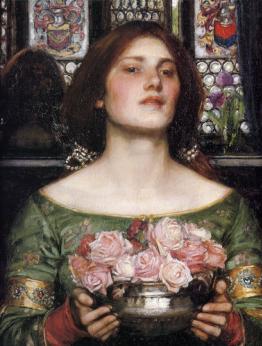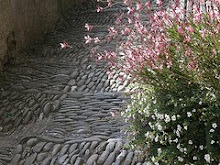
"The View from Primrose Hill comprises not only London, with its masses of houses and hundreds of spires, but also the once rural retreats of Hampstead and Highgate, now almost become portions of the great town itself. Opposite is St. John's Wood, and in the rear of St. John's Wood the graceful spire of Harrow-on-the-Hill; nearer the spectator are the close streets of Portland Town, and the elegant domain of Regent's Park. The eye, after resting upon St. Paul's as the nucleus of the vast city, glances over Islington and Holloway to the undulating hills of Kent and Surrey; and upon, a clear day may be descried the bright roofs of the Crystal Palace at Sydenham."
from Curiosities of London, John Timbs, 1867
http://en.wikipedia.org/wiki/John_Timbs
"Primrose Hill was purchased by the Crown from Eton College early in the present century as a public resort, and it now rises from the midst of fifty acres of land laid out as a park to the north of Regent's Park. The summit is 206 feet above the Trinity high-water mark of the Thames, and it commands an extensive view of the Metropolis. The London and North-Western Railway constructed a tunnel under the Hill more than sixty years ago, which was thought a great engineering feat at that time and for long afterwards. On the southern slope, in 1864, Phelps, the actor, planted an oak to commemorate the Shakespeare tercentenary. Primrose Hill is much frequented on Bank Holidays, and when toboganning is to be had."
from The Queen's London, 1896
And still is today ... though with snowboards, skis and sleds (Feb. 2009) ...

Picture: (Heathcliff O'Malley)
more photos from The Telegraph
"Primrose Hill is a high mound at the north side of Regent's-pk, whence a good view may be obtained. Only a few years ago Primrose-hill was in the fields, and from the Regent's-pk to Hampstead there was little but open country. Now the hill is the centre of a large new town, and a great population has grown, up around it. It is very popular with holiday makers who are unable to get out of town, although, with the exception of a rather small open-air gymnasium, there is nothing to contribute to the public amusement."
from Charles Dickens Jr. et al, Dickens Dictionary of London, c.1908 edition



























My Beautiful niece you both look so relaxed in LOVE and AMAZING photos. photographer primrose hill
ReplyDelete